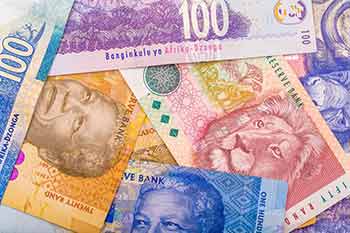EUR/ZAR Exchange Rate Rangebound, ECB Stimulus Measure Odds Rise
The Euro South African Rand (EUR/ZAR) exchange rate held steady today, with the pairing currently trading around R16.167 following Friday’s gloomy German growth estimate for the final quarter of 2019, with Destatis reporting that the Eurozone’s powerhouse economy had stagnated with a mere 0.1% expansion.
Joshua Mahony, the Senior Market Analyst at IG, commented:
‘The German economy has gone from being the bastion of Eurozone growth to perhaps the greatest hindrance, with the industrial powerhouse continuing to suffer under the wrath of Donald Trump’s combative approach to global trade.’
The Eurozone is also becoming increasingly beleaguered by rising concerns over China’s coronavirus outbreak, which threatens to disturb the global supply chain and further hinder Germany’s industrial and manufacturing sector.
Euro (EUR) traders are remaining cautious today, with fears that the Eurozone’s largest economy could quickly succumb to a recession should China’s epidemic restrict growth in the bloc’s near-term growth.
With expectations rising over the European Central Bank (ECB) loosening its monetary policy in March’s meetings, and potentially pushing its interact rates into deeper negative territory, the outlook for the Eurozone economy looks increasingly bleak.
We should expect the EUR/ZAR exchange rate to remain volatile this week, with any further signs that the Germany economy could suffer early into 2020 being Euro-negative.
ZAR/EUR Exchange Rate Steady, Coronavirus Outbreak Weighs on Risk-Appetite
The South African Rand (ZAR) failed to gain on the Euro (EUR), however, as China’s coronavirus outbreak continues to drive volatility for the risk-sensitive South African currency.
However, the ZAR has benefited today from China’s stepping up to shield the world’s second-largest economy from the impact from the virus, with China’s central bank cutting its interest rate on medium-term lending to cushion the virus’s drag on the Chinese economy.
Siobhan Redford, an Economist at Rand Merchant Bank, commented:
‘Eyes will once again turn to [the South African] Parliament as Finance Minister, Tito Mboweni, delivers a much-anticipated budget. So, in the absence of significant political news, domestic financial markets are likely to be driven by global sentiment.’
As the South African economy continues to falter, however, market appeal for the South African Rand (ZAR) remains limited with many economists saying that the budget will be all about avoiding the currency being downgraded by Moody’s.
Annabel Bishop, Chief and Economist at Investec, commented:
‘In order to avoid a downgrade, the budget needs to lower its debt projections, from an unsustainable 71% of GDP in 2022/23 to likely below 60% of GDP in the medium-term, a hard ask given that the current fiscal year is anticipated at 60.8% of GDP already… We believe [, however,] some fiscal consolidation will occur, but it is uncertain whether it will be enough to return the outlook on SA’s credit rating back to stable.’
EUR/ZAR Outlook: Could the Euro Sink on Weak German Economic Morale?
Euro (EUR) investors will be looking ahead to tomorrow’s release of February’s German ZEW Survey of economic sentiment, which is forecast to sink from 26.8 to 21.5. As a result, we are likely to see the single currency sink as the outlook for the German economy continues to darken.
The South African Rand (ZAR) will continue to be driven by global economic developments, however, with any signs that China’s coronavirus could negatively impact the world’s second largest economy in the first quarter weakening the risk-sensitive ZAR.
